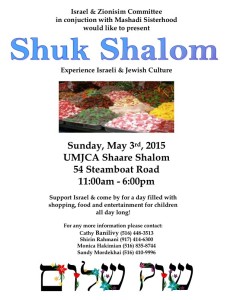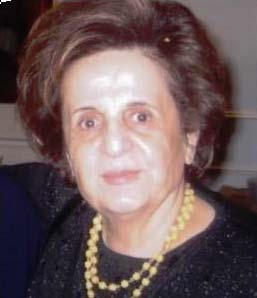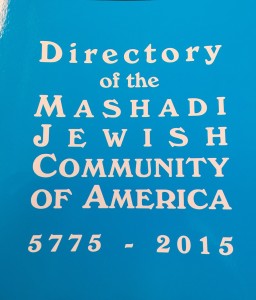Dear Friends;
I hope that you will enjoy the following two Parashiot summaries followed by a Dvar Torah;
” Parshiot in a Nutshell ”
The Torah commands a woman to bring a korban after the birth of a child. A son is to be circumcised on the eighth day of his life.
Tzara’at is a super-natural plague, which can afflict people as well as garments or homes. If white or pink patches appear on a person’s skin, a Kohen is summoned. Judging by various signs, such as an increase in size of the afflicted area after a seven-day quarantine, the Kohen pronounces it tameh (impure) or tahor (pure).
A person afflicted with tzaraat must dwell alone outside of the camp until he is healed. The afflicted area in a garment or home must be removed; if the tzara’at re occurs, the entire garment or home must be destroyed.
The Torah describes the purification procedure for a person afflicted with tzara’at upon conclusion of his isolation. This process extends for a week and involves sacrifices and immersions in the mikvah. Then, a kohen must pronounce the afflicted pure.
Ritual impurity is also caused by a seminal or other discharge in a man, and menstruation or other discharge of blood in a woman, necessitating purification through immersion in a mikvah.
” Dvar Torah ”
The main topic of discussion in this week’s Parashiot is a disease called “Tzara’at”. There is no real translation for this disease, since this disease never existed in any other cultures, but it’s somehow similar to Leprosy, with the exception of not being contagious. This disease does not have any scientific proof, nor any medical remedy, but rather, it is a heavenly disease brought down by Hashem and cured by Hashem. The Chachamim say that this disease is a punishment for committing a sin, mainly the sin of “Lashon Hara”, gossiping and evil talking about someone else. This disease is a disfiguration and a discoloration of human skin, but it can also fall on a person’s hair, beard, clothing, household items and even home. When a person suspects that he has been afflicted with Tzaraat, he does not need to see a physician, but rather, he has to go to a Kohen. The Kohen then evaluates the afflicted area, and if he sees the symptoms, he quarantines him. After a week, he looks at the blemish again, and if it has increased in size or depth, he declares the victim “tamei”, impure, and he has to leave the camp and be isolated from the rest of the congregation. Only when he is healed, he may enter the camp again, which is a sign that he has repented his slanderous ways. And the only way he would get cured, is by coming to realize what he did was wrong and repent.
The whole procedure of Tzaraat was quite embarrassing. If contaminated with the disease, the Kohen had to accompany the convict to outside of the camp in front of the whole congregation and he had to announce in loud voice that he has Tzara’at. The Chachamim say that the punishments given in the Torah are usually measure for measure. The same way that the victim of an evil gossip is avoided and disrespected by everyone else; the same way the gossiper is put to shame and forced to isolate himself from the rest of the community.
The Torah then tells us that the fate of the stricken man is totally dependent upon the will of the Kohen. Unlike today’s time, the victim could not ask for a second opinion! The kohen is shown the negah (blemish) and has complete authority to declare it “tamei” (impure) or “tahor” (pure), which determines the faith of the victim whether he could stay or leave the camp. In fact, even if all signs point to the declaration of impurity, if the kohen, for any reason deems the person tahor or refuses to declare him tamei, the man remains pure and stays in the camp. But the way the Torah describes the examination procedure by the Kohen is quite strange. The Torah says: “And the kohen shall look at the “negah” affliction on the skin and behold it has changed to white and appears deeper than the skin of the flesh – it is tzara’at and the kohen shall look at the man and declare him tamei”!
The question that comes to mind is quite simple. How many times does the Kohen need to look? If he looks at the blemish and it’s clearly tzara’at, then why does he need to look at the man again before publicly declaring him impure?! As the saying goes; if it looks like a duck, walks like a duck, quacks like a duck, then it must be a duck!
Rabbi Kamenetzky gives a beautiful explanation to this question. The kohen who is instructed to deal with the stricken individual should not only look at the affliction, but he must also look at each person, individually! The Kohen must realize what consequences his verdict will bring upon the person and what the victim has to go through! Even if the “negah” has all the attributes that should lead to a declaration of impurity, there are other factors that must be weighed. If the man is a groom, about to be wed, impurity must not be declared. If the man is expecting a new baby sometime soon; if he is moving to a new house or if it will ruin any upcoming festivities, then a declaration of contamination must be postponed. The kohen, a man of love and peace, is not expected to embarrass or humiliate the afflicted person when he is in a state of joy, but rather, he is obligated to hide the truth. We would think that a person who has committed Lashon Hara and has humiliated someone publicly, deserves to be humiliated himself! But the Torah is telling us otherwise! The Kohen is expected to show compassion even towards a sinner! The purpose of the tzara’at is not to punish the person or “chasbe shalom” to get back at him, but rather, it’s suppose to make him realize what he did was wrong and help him to change his ways. And that’s why the Torah demands from the Kohen to look beyond the blemish and look at the man himself!
Yes my friends, there is a great lesson we can learn from here . When we want to announce something embarrassing about someone else in public, whether it’s true or not, we should think of the man first, and evaluate the consequences of our action! How would our announcement affect his life? It’s very easy to call someone a thief, a crook, a womanizer or an alcoholic, but we have to remember that these stains may stay with him for the rest of his life. The torah is telling us that embarrassing someone publically is so wrong that sometimes we are allowed, even obligated, to hide the truth! If Hashem has so much compassion even towards a sinner and doesn’t want to embarrass him in public, then how much more we should have compassion for our fellow jews and not to humiliate them in public!
Remember that words are stronger than actions. You can hurt someone a lot more with words than with your actions……
Shabbat Shalom & Regards;
Martin





You must be logged in to post a comment.